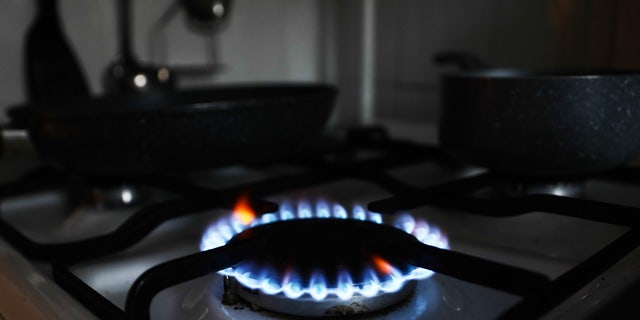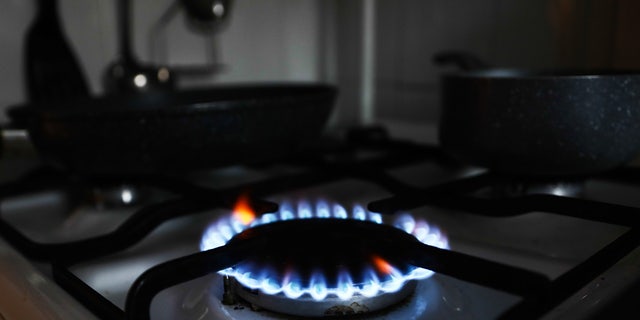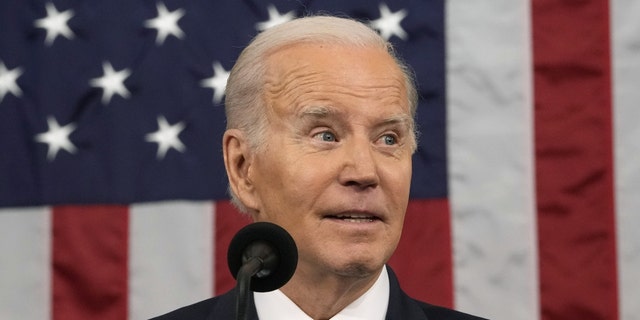
EXCLUSIVE: A coalition of 18 energy and consumer advocacy organizations are filing comments with the Department of Energy (DOE) on Monday, arguing the agency’s rules cracking down on gas stoves would harm Americans.
Led by the Competitive Enterprise Institute (CEI), the groups argued the regulations on stovetops, which the DOE introduced in early February, would compromise consumer choice and are therefore “arbitrary and capricious” while having minimal impact on climate change. The comment letter largely focused on compliance with the Energy Policy and Conservation Act (EPCA) which mandates the federal government implement energy efficiency measures while not harming consumer choice.
“EPCA does not mandate a new energy conservation standard for cooking products, but permits one only if it benefits consumers. This is not the case here,” the groups wrote. “The proposed rule would almost certainly compromise some of the features that gas stove users want, and all for the sake of saving an insignificant amount of energy.”
“The agency’s exaggerated claims of climate change benefits do not alter the fact that proposed rule violates the consumer protections in the statute,” they continued. “For these reasons, we believe the proposed rule should be withdrawn.”

“We believe the proposed rule should be withdrawn,” a coalition of 18 consumer and energy groups wrote to the Department of Energy on Monday. (Jakub Porzycki/NurPhoto via Getty Images)
According to the letter, the EPCA prohibits the DOE from setting an efficiency standard that would “sacrifice any desired product characteristics.”
However, the stovetop rule would likely limit the use of so-called high input rate burners which are larger burners often used for boiling water, searing or stir-frying. It would also limit gas stoves from utilizing smaller low-heat burners used for simmering, meaning the overall range of burner types on stoves would be narrowed considerably.
In addition, the DOE rule proposes to limit stoves’ heavy or continuous grates which are often cast iron and used for handling heavier pots.
DEMOCRATS, ECO GROUPS TAKE AIM AT OTHER HOME APPLIANCES AMID GAS STOVE DEBATE
“Ostensibly, these DOE efficiency standards are supposed to benefit consumers. That’s the way the law is written,” Ben Lieberman, a CEI senior fellow who helped draft the comments, told Fox News Digital in an interview. “But they’re clearly being done as part of the climate agenda, especially this agenda to electrify everything.”
“On the surface, this is an efficiency standard. I see it as being done in a way that will create disadvantages for gas stoves in order for them to comply,” Lieberman continued. “So, it’s not a ban on gas stoves, but it’s some of the features that people like about gas stoves. Some of the characteristics they like about those gas — those may have to be eliminated.”

After a Biden-appointed member of the Consumer Product Safety Commission said the agency would consider a ban on gas stoves, the White House said the president didn’t support such a measure. (Jacquelyn Martin/AP/Bloomberg via Getty Images)
Lieberman also argued the DOE’s purported emissions savings from the regulations would be negligible and cited a Heritage Foundation analysis that found the DOE’s projected avoidance of 19.6 million metric tons of carbon dioxide from the gas stove rule would result in temperature mitigation of just 0.0004 degrees Celsius by 2050 and 0.0009 degrees Celsius by 2100.
DEMOCRAT-LED CITIES ARE ALREADY MOVING FORWARD WITH GAS STOVE BANS THAT WILL AFFECT MILLIONS
“There’s not just the economic concerns, but also questions whether — if their goal is to reduce greenhouse gas emissions — this a smart way of going about it,” he continued. “I think there’s a serious question there as well.”
On Feb. 1, the DOE proposed the regulations, saying they would go into effect in 2027 and save Americans up to $1.7 billion while curbing greenhouse gas emissions. Energy Secretary Jennifer Granholm pushed back on criticism, saying she owned a gas stove and that the regulations would impact 50% of current gas stove models.

“The full range of gas stoves absolutely is not affected,” Energy Secretary Jennifer Granholm said in March. “In fact, half of the gas stoves on the market right now wouldn’t even be impacted.” (Brendan Smialowski/AFP via Getty Images))
“The full range of gas stoves absolutely is not affected,” Granholm remarked at a House hearing in March.
The proposal, meanwhile, came less than a month after a President Biden-appointed member of the little-known Consumer Product Safety Commission (CPSC) made headlines when he told Bloomberg in early January that a gas stove ban was “on the table” given the product’s purported impacts on health.
The White House later denounced a ban, but the CPSC said it would proceed with taking in public feedback on gas stove safety.
CLICK HERE TO GET THE FOX NEWS APP
And over the last several months, meanwhile, the DOE has introduced a series of other energy efficiency regulations impacting various home appliances including air conditioners, ovens, clothes washers and refrigerators. Critics have blasted the rules as federal overreach and unnecessary given that the industry has improved technology without government intervention.
Other organizations that signed the letter led by CEI on Monday include the Caesar Rodney Institute, Center for the American Experiment, Mackinac Center for Public Policy, Thomas Jefferson Institute for Public Policy, Heartland Institute, Science and Environmental Policy Project, Energy & Environment Legal Institute, Consumers’ Research, Institute for Energy Research and FreedomWorks.








